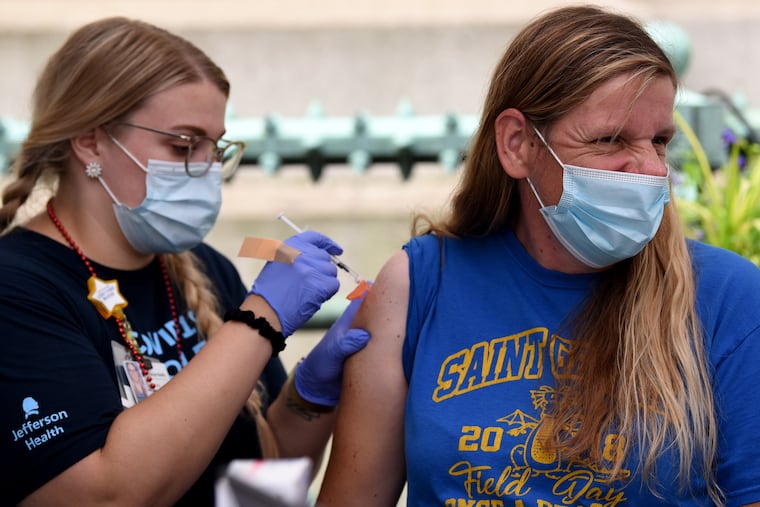Vaccines continue to protect against COVID-19, but latest Pa. data show signs of waning effectiveness
The majority of people infected or hospitalized by COVID-19 are unvaccinated, but waning immunity appears to be playing a role in a growing number of vaccinated people ending up sick.

Pennsylvania’s latest data on COVID-19 cases and hospitalizations show vaccines continue to provide a significant defense against the virus, but also includes signs that waning immunity may be one factor in the virus’ spread.
More than a quarter of all COVID-19 cases and hospitalizations reported in the state over the past month were among fully vaccinated people, a number Pennsylvania Department of Health authorities said was in line with national rates. Out of 4,989 hospitalizations, almost 1,300 fully vaccinated people were hospitalized with COVID-19 in the past month.
The Centers for Disease Control and Prevention reported in September that the Pfizer vaccine’s protection against hospitalization waned significantly after four months.
The state’s figures are a big change from the numbers first released last month covering the entirety of the vaccination effort. From Jan. 1 to Oct. 4, the state reported just 9% of COVID-19 infections were breakthrough cases, and just 7% of those hospitalized had been vaccinated. Looking at all data from January to present conceals the recent effect of the highly transmissible delta variant and the vaccines’ reduced effectiveness, both relatively new developments.
Overall, fully vaccinated people are still less likely to get sick with the virus, and less likely to be hospitalized or die if they do get infected. Of the almost 6.3 million people fully vaccinated in Pennsylvania, just 3,247, about .05%, were hospitalized for COVID-19.
And as more people are vaccinated, breakthrough infections are likely to make up a greater portion of cases.
In Philadelphia, where 65% of residents age 12 and older are fully vaccinated, about a quarter of people hospitalized were vaccinated, according to September data.
While new COVID-19 cases in Pennsylvania grew through July and August, they have begun to plateau more recently. Nationally, cases and deaths are both on the decline.
The Pennsylvania data show new cases continue to occur primarily in unvaccinated people. Out of the state’s 135,098 positive cases over the past month, almost 100,000 were among unvaccinated or partially vaccinated people.
The data reflect several factors, said Denise Johnson, acting physician general for the Pennsylvania Department of Health.
“There is a factor of waning immunity. There are some individuals who have more of a risk of having a breakthrough case because of waning immunity,” she said. “We also know we have a lot more people who are vaccinated.”
As more people are vaccinated, she said, it’s inevitable there will be more breakthrough cases. And August saw an uptick in first doses administered in the commonwealth compared to the previous month.
What’s unclear, though, is who is experiencing breakthrough cases, she said. The data released Friday are an aggregation, and do not include specifics such as age, race, date of vaccination, and vaccine brand received.
“The vaccines still are working,” Johnson said. “I really don’t want people to be dissuaded from getting that primary series of vaccine.”
About 58% of the state is fully vaccinated, and almost 64% have received at least one dose. Johnson noted children ages 5 to 11 were expected to soon be eligible to receive doses of the Pfizer vaccine.
The CDC reported people 65 and older are particularly susceptible to waning immunity. The agency authorized boosters of the Pfizer vaccine for vulnerable people and people in some high-risk professions last month.
Johnson acknowledged that people who are not eligible for boosters have been getting them anyway. There isn’t any health risk to doing that, she said, but she didn’t recommend it, saying she didn’t want people to get doses they didn’t need.
It’s too soon to tell, she said, how booster shots are affecting infection and hospitalization rates among the vaccinated.